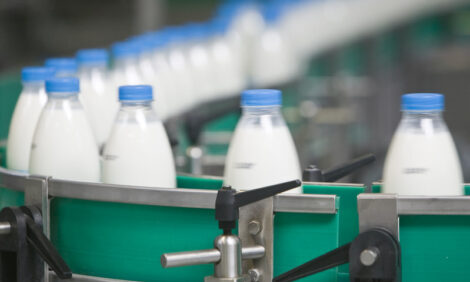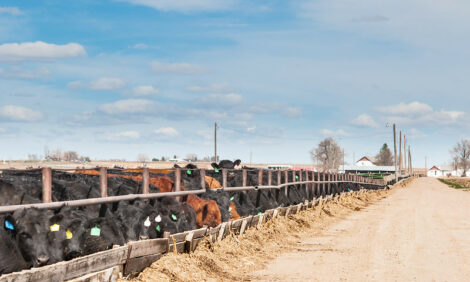



Australian Dairy Producers Build Asian Export Success
AUSTRALIA - Over the last 13 years, the Mulcahy brothers have transformed their northern Victorian dairy farming enterprise into an Asian export success story.Fresh milk from a 2700-cow Holstein herd – processed just five minutes away from their three farms – now sells to consumers in mainland China, Malaysia and Singapore, reports the Stock & Land.
The Kyabram factory they operated for just eight hours a week back in 2000 now runs around the clock, six days straight, employing 70 people.
Despite a savage drought and the huge challenge of evolving their farming business into a manufacturing, marketing and exporting venture, the Kyvalley Dairy Group has gained real traction in the mainstream milk business.
Twin Mulcahy brothers Peter and David and their wives Mandy and Rosalie opted to try processing and marketing their own milk after becoming fed up with the inconsistent earnings and limited buyer options for their supplies to the bulk dairy commodity market.
Good seasons on the farm were invariably undermined by volatile global prices for milk powder and cheese, while a volatile Australian dollar added to price forecasting frustrations.
With help from industry deregulation adjustment funds for farm infrastructure in 2000, the Mulcahys started marketing their own Breakfast Milk brand locally and in Melbourne.
The fourth generation dairy farmers also pioneered an internet-based milk ordering and customer payment system in the early days of e-commerce.
Third brother and industrial engineer Wayne was coaxed home to run the new $1 million milk bottling plant, which has since had about $5m more spent on boosting its capacity as the Mulcahys expanded into contract bottling for the A2, Metro Milk and Jonesy’s Dairy Fresh markets in Victoria, NSW and South Australia.
“The first six or seven years weren’t easy, especially because of the extra work and costs caused by a decade-long drought, but business has grown steadily and our customer base has expanded well in recent years,” said Wayne Mulcahy.
“It’s not overly profitable, but we have certainly achieved our goal of having stable milk pricing which makes it much easier to run a business.”
The break into export markets came when Kyvalley was asked to supply milk in 18,000-litre bladders shipped in refrigerated containers to Asia.
The company’s ability to process milk just minutes after leaving the farm, combined with its reputation for strict milking and processing procedures, ensures milk remains fresh for up to 26 days – ideally suited to handling a 13- to 18-day shipping journey from Melbourne.
After initially supplying on contract to one buyer, they now send 200,000L a week direct to three customers in Singapore and Malaysia who bottle it for the local market.
Another relatively new deal has one-litre bottles of locally-packed product air-freighted to an inland distribution point in China, with orders likely to total 10,000L a week by spring.
“Customers (in Asia) are very focused on high quality – that’s how we managed to get our foot in the export door in the first place – but in many ways exporting isn’t much different to servicing domestic customers,” Mr Mulcahy said.
Kyvalley was looking at other Chinese market options including Hong Kong, aided by a close relationship with the company’s bankers.
“ANZ has been pushing its strong presence in Asia and is keen to help develop export relationships,” Mr Mulcahy said.
He said the family’s Kyabram operation, with its minimal company bureaucracy and deep relationships across the supply chain, fitted well with the like-minded goals and operations of its four overseas and three domestic customers.
TheCattleSite News Desk


